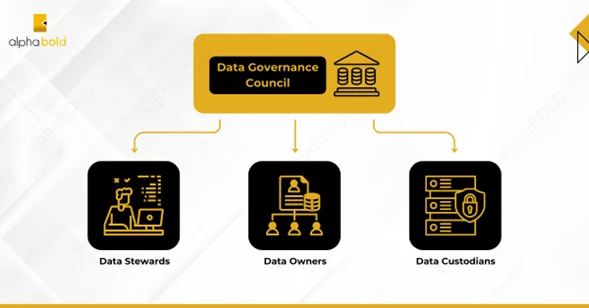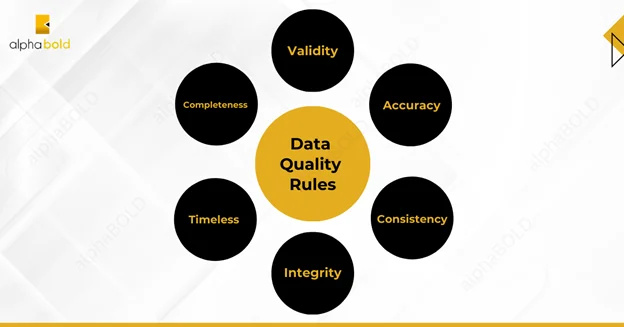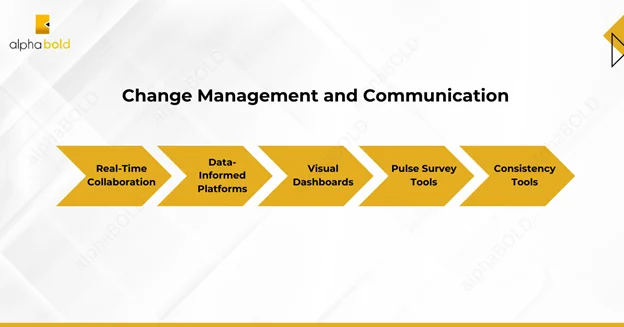Table of Contents
Introduction
A strong data governance strategy is essential for organizations leveraging Microsoft Azure. Despite Azure’s advanced tools for managing data effectively, many businesses encounter hurdles that disrupt their governance efforts. Managed IT services can bridge these gaps, offering specialized expertise and resources to simplify governance processes and maintain compliance.
In this blog, we explore five common reasons why Azure data governance strategies fall short and share actionable solutions to overcome them. Additionally, we’ll discuss how managed IT services can empower your organization to achieve seamless and effective data management.
Lack of Executive Support
A successful data governance strategy starts at the top. Without strong executive sponsorship, securing the resources, budget, and commitment necessary for success is difficult. When leadership overlooks the importance of data governance, it’s often relegated to being seen as merely an IT initiative rather than a strategic business priority.
Tips to Gain Executive Support:
Gaining executive buy-in creates a culture that values data governance across the organization. To secure this support:
- Link Governance to Business Goals: Highlight how a robust framework contributes to compliance, risk management, and operational efficiency.
- Communicate Benefits: Use clear, business-focused language to demonstrate the positive impact of governance on decision-making and overall organizational performance.
- Foster Active Leadership Involvement: Encourage leaders to champion governance efforts, visibly supporting initiatives and setting an example for others.

When executives lead by example, organizations see improved engagement, better budget allocation, and a stronger focus on maintaining data quality and compliance within Azure environment.
Lack of Clarity on Expectations, Roles, and Accountability
An effective data governance strategy relies on clear expectations, well-defined roles, and strong accountability. Many organizations face ambiguity around data ownership and responsibilities of managing data assets and Azure resources, such as Azure Data Lake Storage and Azure SQL Database.
How To Create a Culture that Helps Improve Data Governance?
To foster a culture of responsibility, organizations should:
- Establish a Data Governance Council: Define key roles, such as data stewards, data owners, and data custodians. This council should also create specific policies and procedures outlining who is accountable for compliance and data quality.

- Leverage Tools Like Azure Purview: Use tools to catalog data assets, maintain visibility into data lineage, and help team members understand their roles in data governance.
- Promote Alignment on Expectations: Ensure all stakeholders clearly understand their responsibilities, driving better collaboration and governance practices.
By implementing these strategies, organizations can align their teams, enhance data reliability, and support analytics and reporting in tools like Power BI.
Inadequate Data Quality Standards
The success of any data governance strategy depends significantly on data quality. Unfortunately, many organizations overlook the need for clear data quality standards in their Azure environment. Inconsistent or inaccurate data can weaken governance efforts, leading to flawed insights and suboptimal decision-making.
Tips to Resolve Subpar Data Quality Standards:
To address data quality challenges, organizations should:
- Develop Comprehensive Data Quality Metrics: Focus on key aspects such as accuracy, consistency, completeness, and timeliness.
- Leverage Azure Tools: Use Azure Data Factory for data cleansing and validation to maintain high-quality data.
- Integrate Regular Assessments: Conduct periodic data quality checks as part of the governance strategy to ensure compliance with established standards.
- Automate Quality Checks: Implement automated processes to identify and address issues proactively, ensuring data reliability.

By prioritizing data quality, organizations can strengthen their governance framework, build stakeholder trust, and make informed decisions that drive efficiency and maintain a competitive edge.
Data Governance Strategy Success Begins with The Right Support
With AlphaBOLD's managed IT services, you gain the expertise and tools needed to streamline your Azure data management processes.
Request a ConsultationFocusing on Tools Rather Than Processes
Organizations often overemphasize advanced tools and technologies while overlooking the critical processes that underpin an effective data governance strategy. While tools like Azure Purview and Azure Data Factory are powerful, they can result in disjointed governance efforts if not supported by well-defined processes and best practices.
How to Balance Tools and Processes for Better Data Governance?
To establish a cohesive and effective governance framework:
- Integrate Tools with Defined Processes: Develop clear guidelines for how data is collected, stored, managed, and monitored, ensuring tools align with organizational needs.
- Document Data Governance Policies: Outline best practices, roles, and workflows in a detailed governance policy, helping team members understand their responsibilities.
- Provide Training: Educate teams on effectively using tools to encourage adoption and ensure compliance with governance standards.

By aligning technology with robust processes, organizations can streamline data governance, improve business intelligence capabilities, and generate more reliable insights from platforms like Microsoft Fabric.
Further Reading: Establishing AI Governance Frameworks in Your Organization
Ineffective Change Management and Communication Gaps
Implementing a data governance strategy in Azure often necessitates significant organizational and cultural changes. Without effective change management and clear communication, employees may resist new processes, especially if they are misunderstood or perceived as unnecessary.
How to Address Change Management and Communication Challenges?
To overcome these issues, organizations should:
- Invest in Change Management Initiatives: Develop training programs focused on Azure services and data governance processes, provide regular updates on governance policies, and create open forums for discussions and feedback.
- Communicate the Value of Data Governance: Clearly articulate the benefits, linking them to business objectives like improved compliance, enhanced decision-making, and stronger customer trust.
- Engage Employees Early: Involve team members in the governance process to build advocacy and buy-in for data governance initiatives.

By fostering open communication and supporting employees through change, organizations can ease transitions, reduce resistance, and cultivate a culture of data stewardship that ensures the long-term success of their data governance efforts.
Further Reading: Change Management 101: Preparing Your Team for New Software
The Time to Fix Your Data Governance Challenges Is Now!
AlphaBOLD’s Azure experts are ready to help you design a strategy that eliminates inefficiencies and delivers results. Request a consultation today and ensure your data works for you—not against you.
Request a ConsultationConclusion
Effective data governance strategy is vital for organizations aiming to maximize the potential of Azure data management. By addressing these common pitfalls—securing executive support, defining roles and responsibilities, establishing data quality standards, focusing on processes, and managing change effectively, your organization can significantly enhance its chances of success in Azure.
At AlphaBOLD, we specialize in helping businesses implement robust data governance frameworks tailored to their unique needs. Our expertise in Azure, Power BI, Microsoft Fabric, data engineering, and business intelligence can help you overcome governance challenges, ensuring your data is a reliable asset for decision-making. Contact us today to learn more about our data governance solutions and how we can help you transform your data strategy for better business outcomes!
Explore Recent Blog Posts








